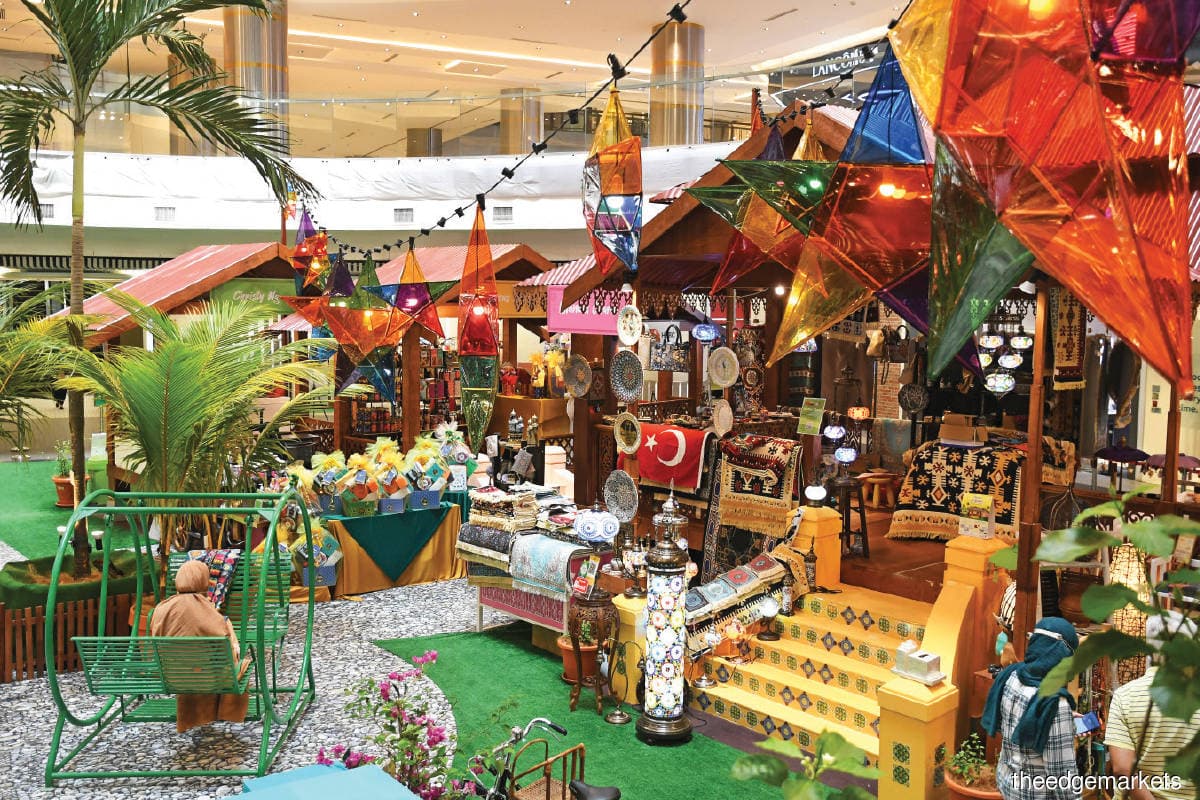
This article first appeared in The Edge Malaysia Weekly on May 10, 2021 - May 16, 2021
HARI Raya shopping has provided much needed cheer to the flagging retail industry, which last year experienced its worst ever year since the 1997/98 Asian financial crisis.
Some retail industry players are finally seeing a pickup in sales, particularly over the past three weeks, following a 16% contraction in retail sales last year to RM90 billion as consumers stayed home and retail outlets remained shut for the greater part of the year.
“Generally, business is recovering. Most retailers are happy that they have been able to clear last year’s stock,” Datuk Ameer Ali Mydin, president of the Bumiputera Retailers Organisation (BRO) and vice-president of the Malaysia Retailers Association, tells The Edge. In fact, some retailers have run out of stock.
Jakel Group managing director Datuk Mohamed Faroz Mohamed Jakel agrees. “We did not expect that the response would be this good for Hari Raya,” he says.
Retail sales are projected to grow 4.1% this year.
Traditionally, Hari Raya sales have translated into one of the best months for retailers, apart from Chinese New Year and year-end sales.
Retail Group Malaysia’s managing director Tan Hai Hsin estimates that shopping for the festival accounts for 18% to 20% of annual sales. “The Malays are the majority of the population and, during Hari Raya, they have a tradition of buying new clothes, changing furniture, redecorating houses and so on.”
The increase in sales was a pleasant surprise to Tan, who attributes it to pent-up demand. This was in contrast to his observations over the past two weeks, which was a decline in shopper traffic in several major malls, following a surge in Covid-19 cases. “Now, with the MCO [Movement Control Order] imposed in most parts of the Klang Valley, it could affect retail sales in the next one week before Hari Raya,” he cautions, especially as the Klang Valley accounts for 60% of the country’s sales.
Nevertheless, things are looking up. Mohamed Faroz says that, last year, Hari Raya sales were down 60% from 2019, whereas 2021 sales are down 20% from 2019.
Not only was Jakel able sell its stock from last year, but it also managed to sell what was brought in this year from South Korea, Japan and Bangladesh, in anticipation of an increase in demand.
Mohamed Faroz believes “people were revenge shopping”, based on his observation of his customers’ shopping patterns in December 2020 during the Recovery MCO.
He was confident that they would purchase ahead for Hari Raya. “We anticipated that things would be back to normal in 2021. I decided then that, since Hari Raya was still five months away, I had better get my stock just in case things got better.”
Setting aside the one to 1½ months of Hari Raya sales, Mohamed Faroz says sales in other months are down 40% compared with 2019 but up 30% compared with 2020.
In the financial year ended Dec 31, 2020, Mohamed Faroz says the group’s textile division sales plunged 45% to RM785 million from RM1.45 billion in 2019. Jakel’s textile division sells items such as fabrics, stitched clothing, wedding attire, curtains, uniforms and scarfs.
Assuming the movement restrictions this year are less stringent than the first one in March 2020, Mohamed Faroz projects that Jakel Trading Sdn Bhd, the group’s largest textile unit, may be able to achieve between RM500 million and RM600 million in sales this year, from RM452 million in FY2020.
In his capacity as president of BRO, Ameer Ali observes that retail sales at malls were down 75% nationwide last year, compared with 2019. After the MCO was lifted, sales recovered to 75% and 80% of 2019’s figure.
“I am optimistic that, for 2021, we should do better than in 2020. We are very happy. Most retailers are able to clear their stock from 2020,” Ameer Ali says. “Many retailers did not import extra products, as they had been fearful.”
As for the performance of Mydin MohamedHoldings Bhd specifically, Ameer Ali, the company’s managing director, says business was particularly good after pay day in April. “We are still not doing as well as we did in 2019, but we did manage to clear our Hari Raya stock from last year. In fact, there was a shortage of Raya products this year. We did not want to take the risk of stocking up.”
He adds that dates, cookies and baju raya were some of the products that ran out of stock.
Last year, Ameer Ali had estimated that RM100 million worth of Mydin’s Hari Raya business evaporated because of the MCO. At the time, he was also concerned that he would be stuck with unsold stock.
Although the company has a grocery business, he says that “overall, business is still slow” and that smaller grocery outfits are the biggest beneficiaries.
Moreover, as Mydin is also a landlord, its revenue was affected because, during the MCO and Conditional MCO, when footfall fell, it provided its tenants with rebates.
Save by subscribing to us for your print and/or digital copy.
P/S: The Edge is also available on Apple's AppStore and Androids' Google Play.

